Causes for Shortness of Breath When Lying Down
The idea of experiencing shortness of breath while lying down may seem odd; most of us associate shortness of breath with strenuous physical activity. We think of the activity that leaves us feeling “winded”, like climbing several flights of stairs, sprinting to chase a toddler before he falls, or even dancing with friends at a party.
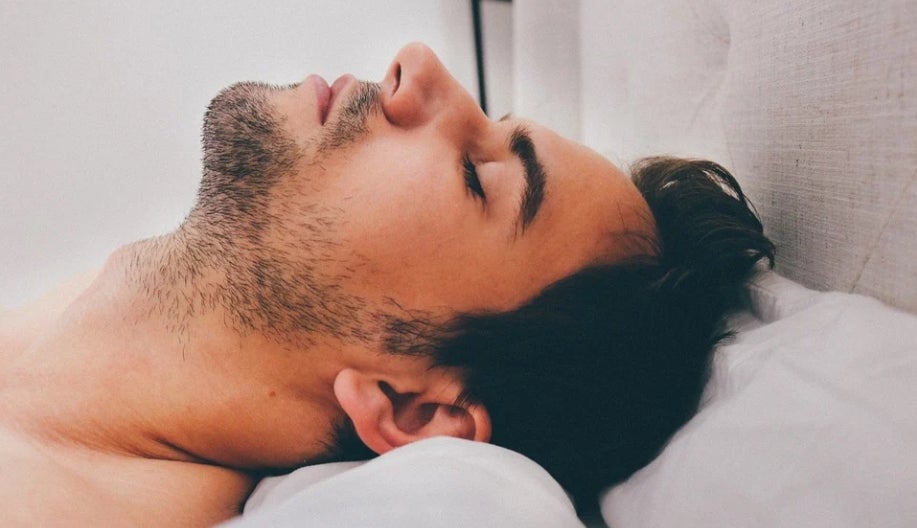
Shortness of breath can be completely normal. Even the healthiest among us would feel winded or a sense of breathlessness after a sprint; however, sometimes shortness of breath can indicate an underlying health condition like asthma, an injury, or even illness.
If you find yourself experiencing shortness of breath while lying down, we will walk you through some of the possible causes. Unusual or sudden shortness of breath should be discussed with your healthcare provider, and you should seek medical attention any time you experience a severe onset.
ORTHOPNEA AND PAROXYSMAL NOCTURNAL DYSPNEA
When shortness of breath occurs while lying down, it may be diagnosed as orthopnea or paroxysmal nocturnal dyspnea. These may sound like complicated medical jargon, but they accurately describe what is happening (accurately in Greek, anyway!)
Ortho is derived from the Greek word for “vertical” and pnea from the Greek word that means “to breathe.” Thus, breathing while vertical (or struggling to do so) is the condition we refer to as orthopnea.
Paroxysmal nocturnal dyspnea relies on the Greek word dys meaning “difficulty,” meaning we wake up in the night (i.e., nocturnal) with breathing difficulties.
This sensation of shortness of breath while lying down can be described in a variety of different ways. Some who experience it describe it as a tightness in the chest, while others liken it to a feeling of being smothered. It is a jarring sensation and can be both upsetting and disruptive to one’s overall quality of life.
WHAT CAUSES SHORTNESS OF BREATH WHILE LYING DOWN?
The health conditions that cause shortness of breath while lying down are wide ranging, and they can be temporary or long-lasting. The list below covers seven of the most common causes, though you may experience breathing troubles for other reasons, and this should always be discussed with your doctor.
Pregnancy
This is an easy cause to self-diagnose shortness of breath as it is both common and expected during pregnancy, especially as you grow closer to your due date.
As your body expands to make room for the growing uterus, there is pressure on your organs and this includes your diaphragm and lungs. You may find yourself feeling short of breath even as you lie in bed.
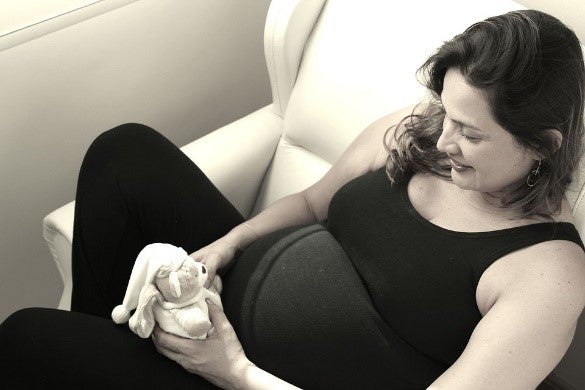
Typically, this is not a cause for alarm in pregnant women; however, you should report severe shortness of breath immediately to your doctor, especially if you have any symptoms of Covid-19.
In addition to feeling winded, pregnant women may experience chest pain, heart palpitations, and fatigue during various points of pregnancy. It is important to speak to your doctor not only about any symptoms but also about the best sleeping positions during your pregnancy.
Sleep Apnea
Sleep apnea may not be as obvious a cause as pregnancy when it comes to determining the root cause of your shortness of breath; however, it affects more than 100 million people worldwide. Sleep apnea can be linked to fatigue and even depression, and it can be difficult to diagnose without a sleep study.
Many individuals are unaware of how sleep apnea may be affecting them, feeling tired even after having slept for eight or more hours. Ultimately sleep apnea means your breathing frequently stops throughout the night.
If you have ever heard someone snore so disruptively that it sounds like they are choking, what you are hearing is likely sleep apnea and that sound is someone gasping for breath.
Risk factors for sleep apnea include obesity, smoking, and the consumption of alcohol and/or sedatives. Men are also more likely to have sleep apnea than women.
To improve shortness of breath while lying down due to sleep apnea, experts recommend:
- Weight loss
- Smoking cessation
- Limiting alcohol and/or sedative intake
- The use of a CPAP machine while sleeping to improve airflow
If these do not work, there are also some options for surgery, including a procedure where extra tissue is removed from the back of the throat to improve airflow.
Heart Failure

One of the more serious underlying reasons for shortness of breath while lying down is congestive heart failure.
With congestive heart failure, a patient’s heart does not pump blood efficiently. This leads to shortness of breath, fatigue, loss of appetite, coughing, and other unpleasant symptoms. Usually, congestive heart failure signifies another underlying issue, such as high blood pressure.
If you are being treated for heart disease speak to your cardiologist or other health providers about any shortness of breath, especially if it becomes severe. Heart failure is not an immediate death sentence. There are medications and surgical procedures that can prolong the lives of patients, but it is still a very serious condition.
Anxiety
Sometimes we can experience shortness of breath as a direct result of anxiety, and it makes sense that for some this happens while lying down.
Individuals who grapple with anxiety may find it difficult to fall asleep, as their minds race and they fret over various problems. This is where psychological symptoms can become physical ones. Feelings of helplessness or fear can manifest physically in the form of trembling, sweating, or even breathing difficulty.
If your anxiety is making it difficult for you to breathe easily while lying down, reach out to a trusted medical professional to explore treatment options. Cognitive therapy and/or medication may be helpful in terms of managing your anxiety and its physical side effects.
Obesity
Weight can play an important role in the quality of not only our sleep but also how we breathe while lying down. Excess weight can make it difficult for an individual to breathe normally and efficiently, when the abdomen and chest could be compressed and prevented from fully expanding.
If obesity is causing shortness of breath while you lie down, or while you go about any of your daily tasks, speak to your healthcare provider about resources and support available to you for weight loss. Obesity is linked to numerous health problems, such as hypertension and diabetes, and a safe weight loss plan could help patients avoid those challenges and prolong life expectancy.
Respiratory Infections
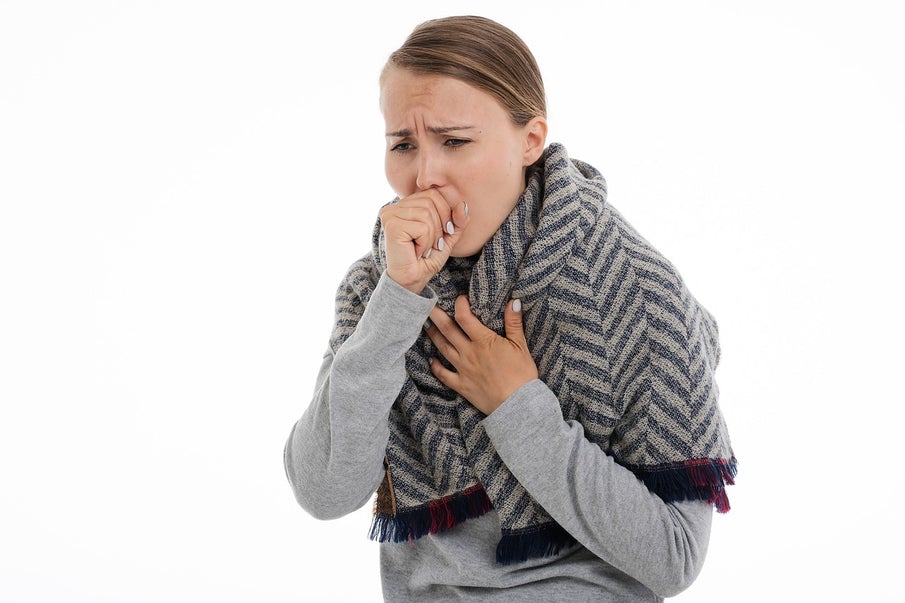
Anyone who has suffered from a respiratory infection knows it can cause difficulty breathing, and this is certainly worsened when lying down. The presence of mucus during such an infection can clog your airways, making it difficult to breathe while you sleep.
The good news is that respiratory infections are temporary, so the difficulty breathing will eventually subside. While your symptoms remain, there are several things you can do to make it easier to breathe while lying down.
Sleeping with a humidifier helps many people, as the additional moisture in the air will reach your nasal and respiratory passages. Also, sleeping with your head elevated can improve airflow, which is recommended not only for anyone with a respiratory infection but also those with sleep apnea.
Often times we become dehydrated while sick with infection, so ensuring you take in enough fluids will also be important to the quality of your breathing and your sleep.
Chronic Obstructive Pulmonary Disease
Shortness of breath is one of the main symptoms associated with Chronic Obstructive Pulmonary Disease (COPD), a condition that affects millions of Americans, especially smokers.
COPD actually refers to a group of conditions, including emphysema and chronic bronchitis, where the lung tissue has been significantly damaged, and airways are narrowed. It is difficult to breathe normally with COPD, and there is no cure for it but there are some effective treatments to ease symptoms.
COPD patients are often prescribed a variety of medications to open up airways, including inhalers, and sometimes surgical procedures may be recommended to help with breathing. If your physician suspects COPD as the reason you are experiencing breathing difficulties, they will likely order a chest x-ray and a spirometry test, which measures how much air you can breathe in and out of your lungs.
SHORTNESS OF BREATH: WHEN TO SEEK MEDICAL ATTENTION
We will all experience shortness of breath at some points in our lives, and it is important to pay attention to signs of a more serious issue versus what might be considered normal windedness.
Some of the more serious signs to look out for include:
- Allergic reaction symptoms (such as throat or facial swelling)
- Inability to talk because of shortness of breath
- Excessive sweating
- Rapid heartbeat
- Extreme fatigue
- Chest pain
- Arm pain
- Dizziness
- Fever
Shortness of breath along with any of the other symptoms above could indicate a serious problem that requires immediate medical attention, such as a heart attack, anaphylactic shock, or a pulmonary embolism. Seek medical attention right away if you are experiencing severe shortness of breath and unusual symptoms.
Average Lung AirPhysio
ENJOY BETTER BREATHING - Use this 100% Drug Free Device - AIRPHYSIO
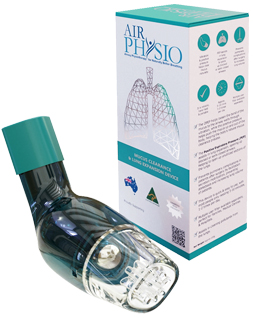
Recent Posts
Sports AirPhysio
IMPROVE YOUR SPORTING PERFORMANCE - Use this 100% Drug Free Device - AIRPHYSIO
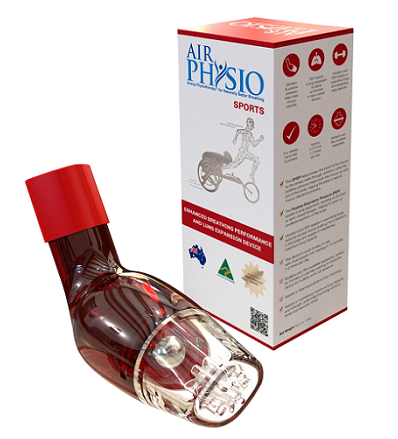
AirPhysio Child
BETTER BREATHING FOR YOUR CHILD - Use this 100% Drug Free Device - AIRPHYSIO
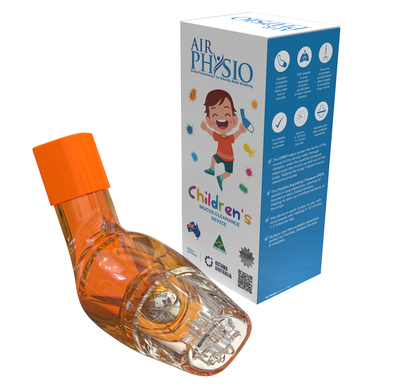
Categories
- asthma (2)
- atelectasis (2)
- bronchiectasis (2)
- copd (3)
- cystic-fibrosis (45)
- featured (10)
- uncategorized (2)


